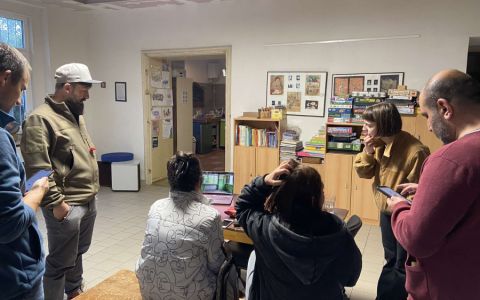The European Environmental Bureau (EEB) and the international network of IPEN NGOs blame the European Commission for overlooking an obvious conflict of interest. In order to develop a study assessing the risks of the use of cancer, Commission chose a company that is associated with more than two dozen private companies active in the chemical industry. The Czech Arnika Association joined the plea.
The whole dispute revolves around a global ban of Teflon chemicals, the so-called perfluorooctanoic acids (PFOA). The European Union has previously nominated these substances for inclusion on the blacklist of the Stockholm Convention on Persistent Organic Pollutants, thereby committing itself to a study of assessing the riskiness of these poisons. According to EEB, IPEN, and Arnika, in the case of choices of industry-related consultants, there is a conflict of interest that devalues the work of the Commission and the environmental organizations so far and poses an unnecessary risk to human health.
"It is not right that the European Union to assign an assessment of the PFOA handling exceptions to an industrial consultant whose clients are directly processed or manufacture fluorinated chemicals,” judges Chief Assistant of EEB Dolores Romano.
According to ecologists, BiPRO is pushing for exceptions to the global ban onF PFOA, which is unsurprisingly suitable for industry representatives. As a result, the next meeting of the Parties to the Stockholm Convention may only limit the use of these cancer substances instead of their global ban.
Exceptions that will not help
One of the nineteen signatories of the challenge is also Arnika. It is a long-term commitment to include PFOA in the list of undesirable substances in the Stockholm Convention.
"It's a shame and irresponsibility," says Karolina Brabcová, Arnika's expert on toxic substances, and continues: "It is a gross mistake from the European Commission, which ethically damages the Commission. The consequences of European chemicals management will be borne by African countries, which are often able to be more progressive and accountable in their international politics. The sustainable environmental policy must, therefore, be promoted not only at home but also at global level."
At the same time, Arnika points out that the effect of the proposed exceptions is in this case counterproductive. "Even if we get rid of these substances within the EU, by export to the developing world everything as boomerangs back in for example form of collisions," explains Brabcová.
Waterproof and non-stick carcinogen
In 2015, however, the European Union proposed the inclusion of PFOA in the list of the Stockholm Convention. Perfluorooctanoic acid can interfere with thyroid function and cause permanent damage to the stomach and liver. The International Cancer Research Organization evaluates it as a potential human carcinogen.
Most PFOAs are used to produce fluoropolymers, which are further used in electronics, the textile industry, and the production of various non-stick surfaces such as Teflon. Until 2013, PFOA was also used to manufacture Gore-Tex fabrics.
The European Environmental Bureau (EEB) is the world's largest network of non-governmental environmental organizations, bringing together more than 140 member institutions in over three dozen countries. Arnika is an active member of the EEB working group on chemicals. The International POPs Elimination Network (IPEN) is a network of organizations operating in over 100 countries to reduce the number of toxic chemicals and reduce the harm to human health and the environment by these chemicals. Arnika hosts two IPEN working groups and coordinates the work of a regional group of organizations in Central and Eastern Europe that recently went to Prague for a three-day conference on a non-toxic future.


BiPro clients include, for example, CEFIC, Saint-Gobain, Dow Europe GmbH, Bayer AG, 3M, RAG Aktiengesellschaft, Daimler AG, Robert Bosch GmbH, H.C. Starck, TIMCAL AG, Federation of European Producers of Abrasives, Silicon Carbide Manufacturers Association, Association of German Abrasive Manufacturers and Deutscher Industrieverband Keramische Fliesen und Platten e.V.
For more information, read the open letter of 19 non-governmental organizations to the European Commission, or a more detailed analysis on the ChemicalWatch site.
Author: Martin Holzknecht, Hana Borejova







